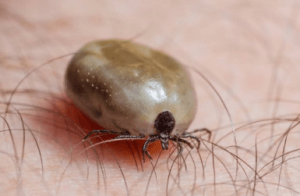
Some pests damage your lawn and garden, pools, and your landscape. But probably the most annoying and very hard to get rid of are pests that suck your blood to survive. Unfortunately, some are more dangerous than others and can be fatal once they decide they want a taste of your blood. Some are very common, some are hiding just under your bed, and some are unique.
Quick Overview
Fleas
Fleas are considered parasites in dog and cat fur. They are parasites that munch on their blood. They are very adept at survival and multiply rapidly. One flea today can be more than a hundred after a few days. They are skilled jumpers and can jump in and out of your pets. They are also the cause of discomfort, wounds, and scabs on your pet. And they do not stop there. Fleas also crave your blood. If a person gets bitten by fleas, irritation and allergic reaction will occur. Ask your veterinarian regarding the best option to kill and get rid of these pests before they do permanent damage to your pets and you.
Bedbugs
Bedbugs are another type of pest that you can get from traveling or sleeping in a bedbug-infested bed or hotel. They are nocturnal and bites when you are fast asleep. Bedbugs are residing inside your mattress and only come out to feed. Due to their size, they can easily slip into cracks on your walls as well. They are hard to kill, especially with their size.
Lice
One of these most common blood-sucking pests that humans like to avoid is lice. They are wingless insects in the human scalp. Lice are exclusively feeding off of human blood. They are itchy, hard to remove, and cause discomfort. Not to mention your self-esteem will take a deep plunge if you have them in your head. Lice like warm weather and are active during summer. A person can get infected by using the same pillow or share the same comb to brush with an infected person. The eggs of lice are often sticking in the hair. You will know if you have lice if you feel like someone is running in your head most of the time.
Leech
A leech is a type of worm that feeds on blood. Leech lives in freshwaters like lakes and rivers. Leech secrete a substance that prevents blood clots, allowing them to feast on its host blood. If you feel like taking a dip into the lake, bring some salt with you and some bandages. If leech attaches themselves to you, sprinkle some salt into them so they unattached themselves voluntarily. Press a cloth or bandage into the wound. Wounds need to be cleaned and bandaged because your blood will not clot.
Black fly
Black flies are one of the most underrated blood-sucking pests. Their suck blood from cattle and wild animals, but they also bite humans. Since black flies are not picky with whatever host they can find, it is also easy for them to transfer diseases and bacteria. Symptoms of a black fly bite include tiny wounds, some experience swelling, and some experience black fly fever. The black fly fever symptoms are nausea, fever, and headaches as well. Be wary of what buzz around you. They might be looking for a way to feast on your blood.
Ticks
Ticks are also annoying pests that are hard to remove from your dog life and your own. Ticks are anywhere. They are active during the summer season when the weather is warm. Ticks are also very much like bedbugs. You or your pets can carry it back to your house and start an infestation. They feed on both you and your pet’s blood. However, ticks are much vicious than bedbugs and fleas as their bites can cause fever, chills, headaches, and nausea. If you have experienced these symptoms from a tick bite, consult your doctor for treatment.
Mites
Mites, in general, are small and almost cannot be seen by the naked eye. There are also different species of mites all over the world, but only one that causes concern. They are parasites called Scabies mites. Scabies mites attach themselves to a human host in the outer layer of their skin. They will lay eggs and feed on you, causing the itchiness that you feel. Scabies spread due to prolonged skin-to-skin contact of humans. Scabies can also transfer by sharing any personal items like pillows and beddings. A cream or oral treatment is available for scabies. Ask your doctor about it before taking any medication.
Assassin bug
Assassin bug is probably one of the most uncelebrated blood-sucking pests we have on this list. Most species of the assassin bug eat other insects like honey bees and ants, thus its name. However, there are one species of the assassin bug that feeds on humans and animals alike. They are considered pests in South America. Assassin bug bites are extremely painful, unlike mosquitoes or other insects. That is because they infuse chemicals that they use to kill insects. It is not toxic, but assassin bugs carry a blood disease called Chagas.
The Aedes Mosquito Family
The most known and most dangerous blood-sucking pests are mosquitoes. There are tens of thousands of species and sub-species of mosquitoes all over the world. But let us talk about two of the most dangerous and the most common species of mosquitoes. The first one would be the Aedes family.
Aedes mosquitoes bite early in the morning and right before dawn. These mosquitoes are known to have white bands around their bodies. They are known to transmit deadly viruses like dengue, Zika virus, and yellow fever. They originated from tropical countries but can now be seen all over the world except for Antarctica.
The Culex Mosquito Family
The culex family of mosquitos is known for its brown to light brown color. They bite during the night. And while the Aedes mosquitoes prefer clear water to lay their eggs, the culex mosquitoes prefer murky waters. While they also feed on humans, the culex mosquitoes also feed on birds and other mammals. They are known to transmit deadly diseases like Avian malaria, West Nile Virus, and Japanese encephalitis.


